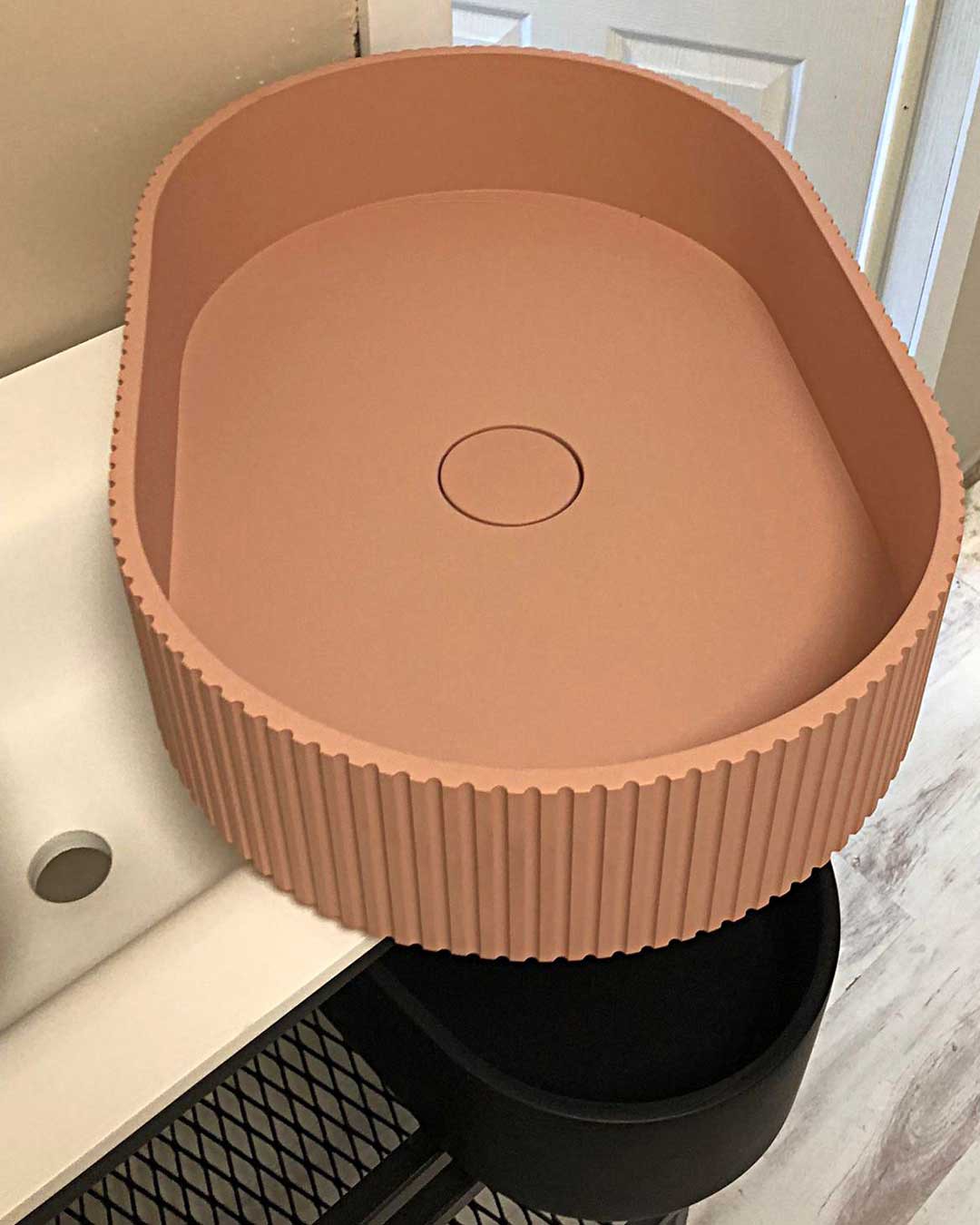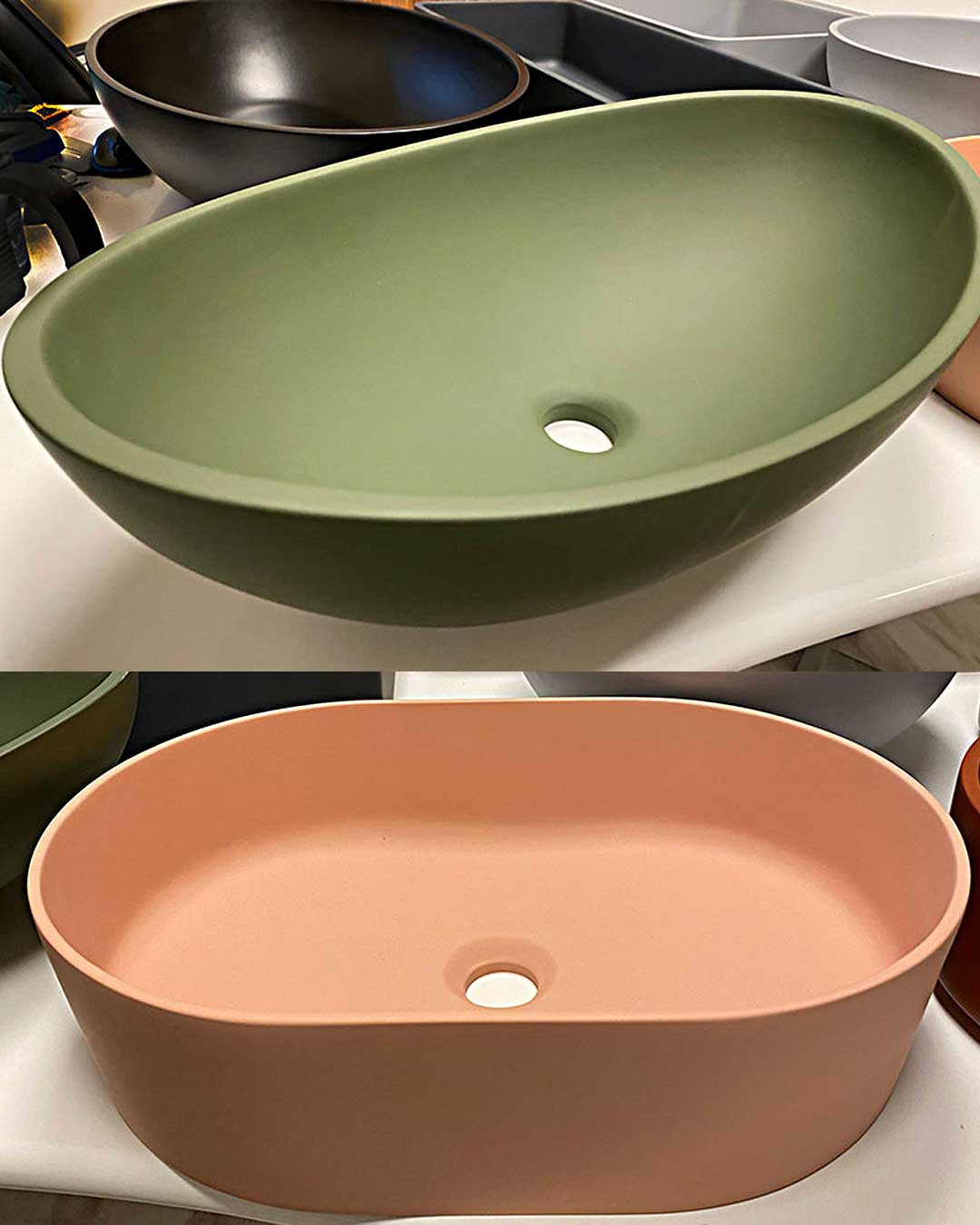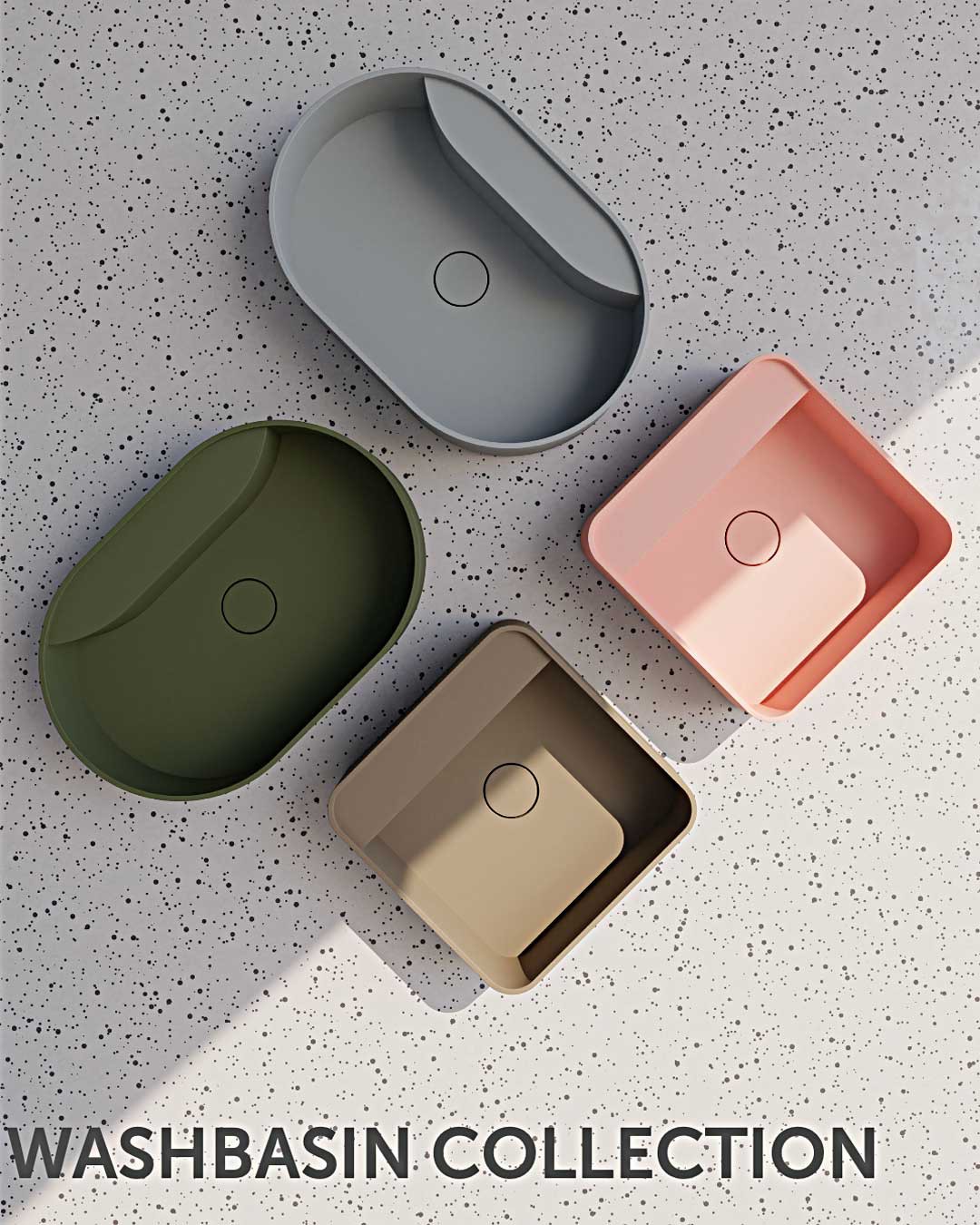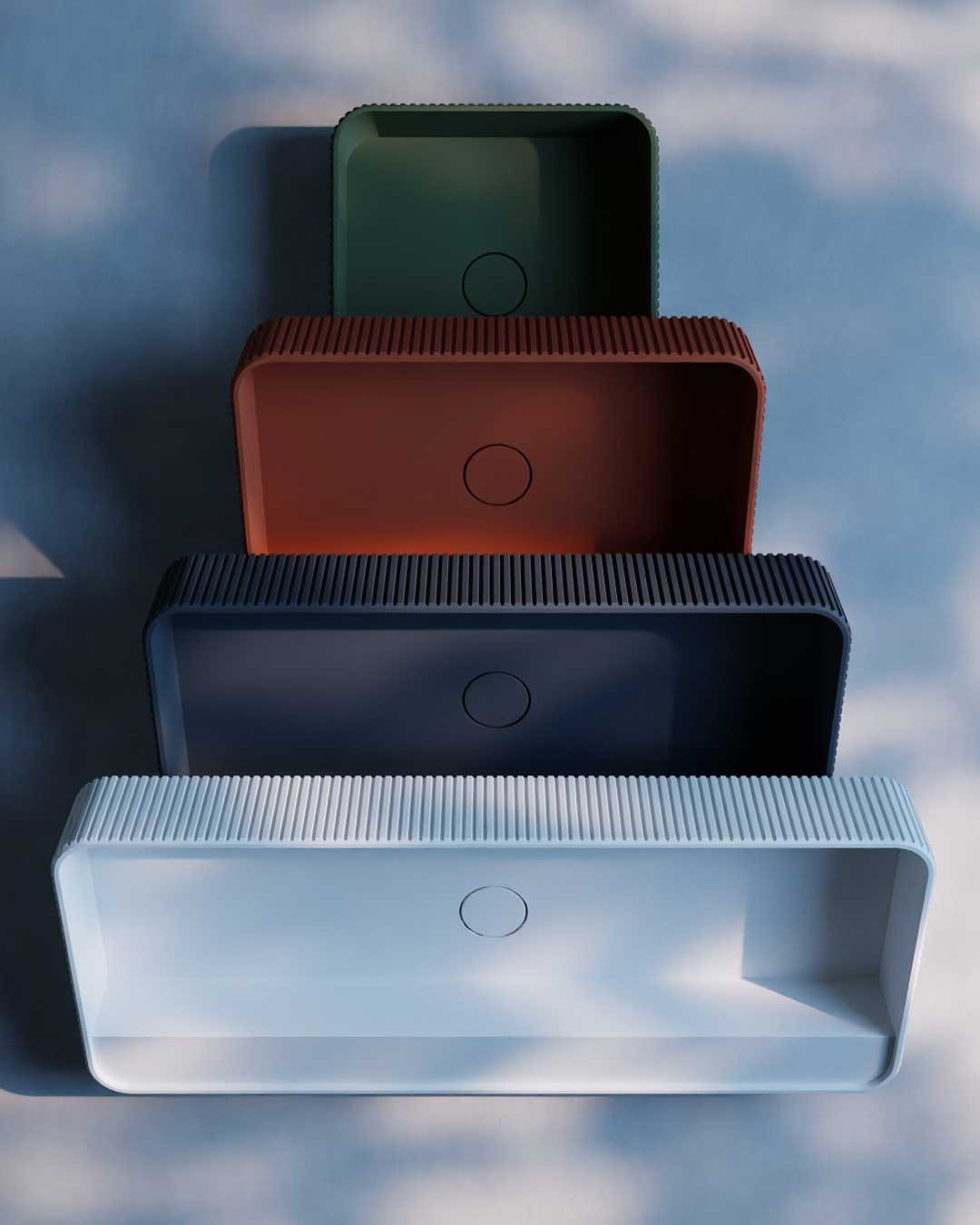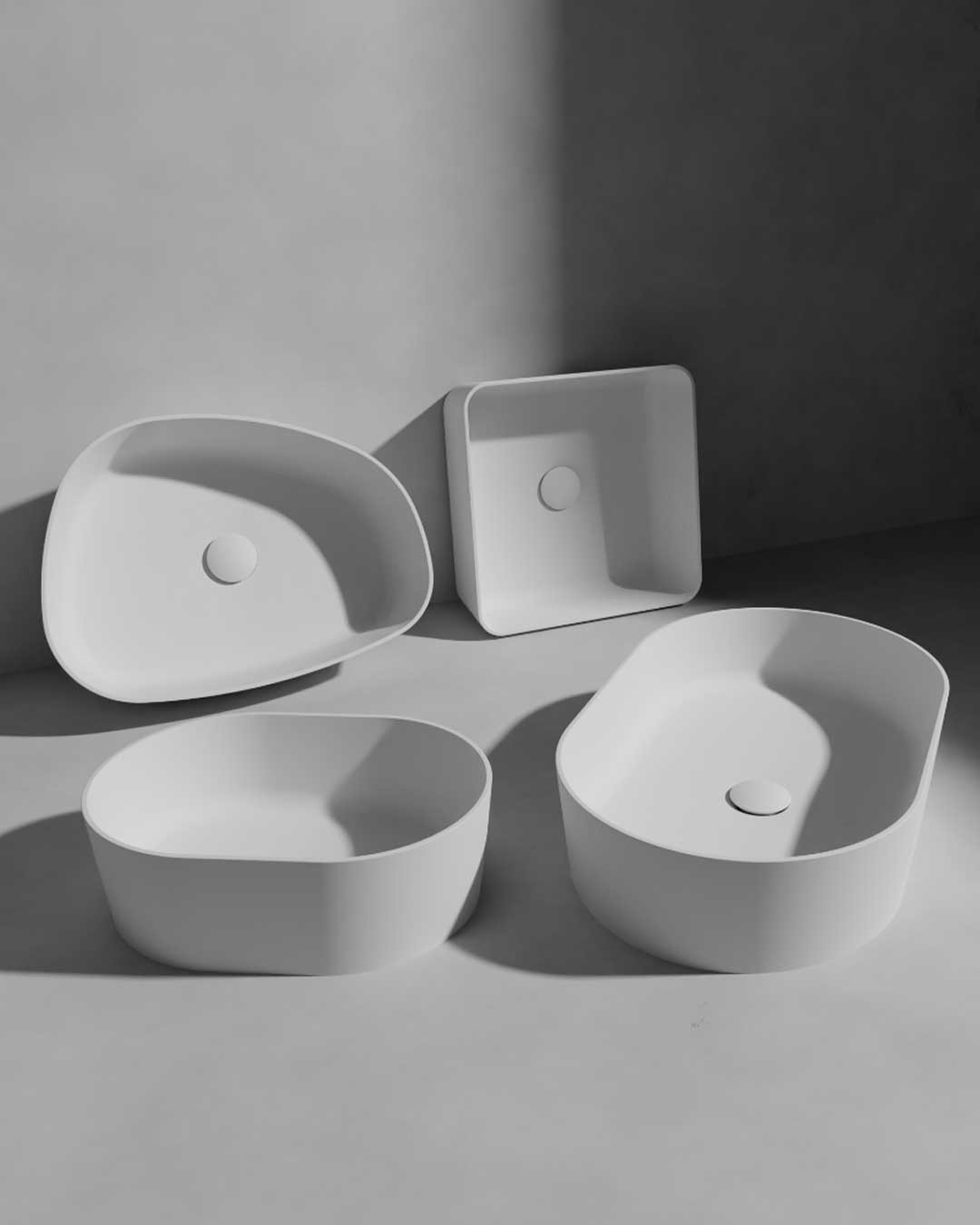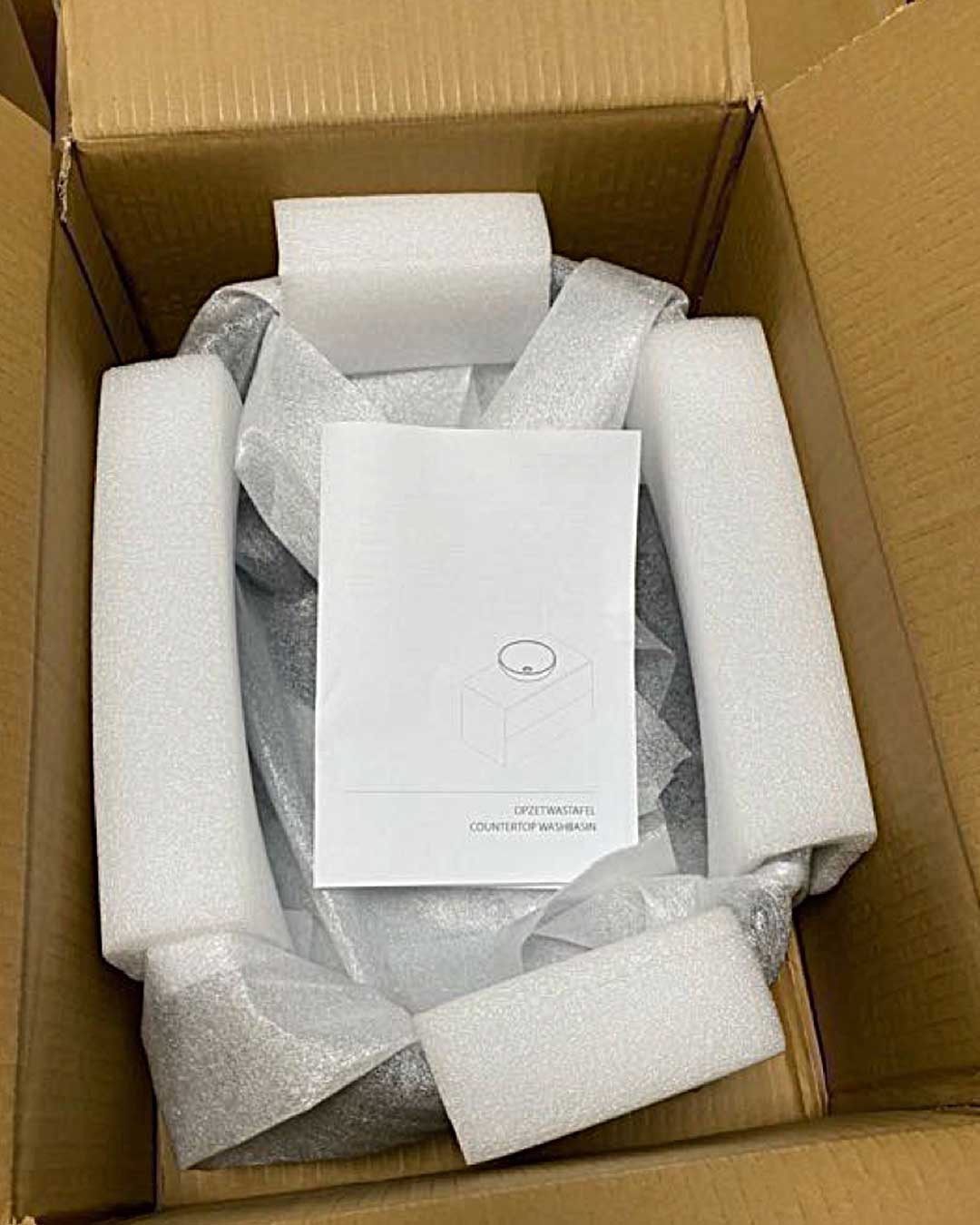Solid surface colorful washbasins
are made from a man-made material known as solid surface, which is a composite of natural minerals and synthetic resins. This material allows for seamless designs and offers a wide range of vibrant colors and patterns, making it ideal for creating colorful washbasins.
Key Components of Solid Surface Materials:
- Alumina Trihydrate (ATH):
- Derived from bauxite ore, ATH is a refined natural mineral.
- It provides the material with bulk, flame resistance, and contributes to its overall durability.
- Acrylic or Polyester Resins:
- Acrylic Resins (Polymethyl Methacrylate or PMMA):
- Offer superior durability and thermoformability.
- Allow the material to be heated and molded into various shapes without losing structural integrity.
- Polyester Resins:
- More cost-effective but slightly less durable than acrylic.
- Often used in combination with acrylic resins to balance cost and performance.
- Acrylic Resins (Polymethyl Methacrylate or PMMA):
- Pigments and Dyes:
- Added to achieve a wide spectrum of colors and patterns.
- Enable manufacturers to produce washbasins in solid colors, translucent shades, or with intricate designs like veining to mimic natural stone.
Properties of Solid Surface Washbasins:
- Non-Porous Surface:
- Resistant to bacteria, mold, and mildew.
- Easy to clean and maintain, promoting better hygiene.
- Seamless Appearance:
- Joints can be glued and sanded to create a smooth, continuous surface.
- Enhances aesthetic appeal and makes cleaning easier.
- Repairable and Renewable:
- Scratches, stains, and minor damages can often be repaired by sanding and polishing.
- Extends the lifespan of the washbasin.
- Thermoformable:
- Can be heated and molded into complex shapes and custom designs.
- Offers flexibility in creating unique and ergonomic basin shapes.
- Applications:
- Used in residential bathrooms, hotels, hospitals, and commercial spaces.
- Ideal for environments requiring stringent hygiene standards due to its non-porous nature.
Environmental Considerations:
- Some solid surface materials are manufactured with recycled content.
- Durable nature reduces the need for frequent replacements, minimizing environmental impact over time.
By combining natural minerals with synthetic resins and pigments, solid surface materials offer a versatile solution for colorful washbasins that are both aesthetically pleasing and functionally robust. Their ability to be customized in color and shape makes them a popular choice for modern bathroom designs.







